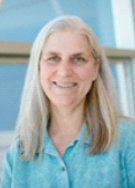|
The leadership team assists
LSSI’s efforts in strengthening our local community
connection and responsibility to Lake Superior and its
watershed. The team coordinates teacher professional
learning, facilitates community-school partnerships, mentors
school-community teams, coordinates LSSI-wide community
activities, and manages the budget, policies, and procedures
for the hub.
Carla Strome,
LSSI Director
 Email:
cstrome@copperisd.org Email:
cstrome@copperisd.org
Carla
Strome is the Director of General Education for the Copper
Country ISD. She has been in the education field for 33
years in various roles including teacher, K-12 Curriculum
Coordinator, Educational Consultant, and ISD Administrator.
She has coordinated and provided hundreds of hours of
professional development for teachers over her career. Carla
began her journey with project-based learning with middle
schoolers in the late 90s and has been a strong advocate for
3P learning ever since. She has worked collaboratively on
several projects with the Lake Superior Stewardship
Initiative since its inception in 2007 and assumed the role
of director in 2023. Carla received her BA in elementary
education from Spring Arbor University, an MA in elementary
education from Northern Michigan University and a K-12
administrator certification from Michigan State University.
Carla has served as an adjunct instructor for Finlandia
University, Michigan Tech University, and Northern Michigan
University.
Joan Chadde
 Center
for Science and Environmental Outreach, Director, Retired Center
for Science and Environmental Outreach, Director, Retired
Email: jchadde@gmail.com
A member
of the Leadership Team for the Lake Superior Stewardship
Initiative since 2007, Joan Chadde has an M.S. in Water
Resources and Secondary Science certification and was
Director of the Michigan Tech Center for Science &
Environmental Outreach (retired). She has more than 30 years
of experience in K-12 STEM and environmental education
program development and delivery, including teacher
professional learning. She is the lead author of the
Michigan Environmental Education Curriculum Support (MEECS)
Water Quality Unit (2012) and coordinated a 2-year
EPA-funded project titled “Creating Great Lakes Stewards to
Promote Clean Water & Healthy Urban Watersheds in Detroit.”
Emily Geiger
 Western
U.P. MiSTEM Network Director Western
U.P. MiSTEM Network Director
Email:
egeiger@copperisd.org
Emily
Geiger currently serves as the Western U.P. MiSTEM Network
Director. In this work she connects and convenes the K-12
education system (Copper Country ISD and Gogebic-Ontonagon
ISD) with community partnerships and opportunities to
advance STEM education. Emily has a Ph.D. in Biochemistry
and Molecular Biology from Michigan Technological University
and has worked in higher education for over a decade in
Houghton County. Her invaluable experience in building
partnerships from various entrepreneurship ventures
contributes directly to the work of LSSI. Emily’s passion
for place-based education has amplified as a mother of two
young boys; her dream is for them to feel connected to their
place!
Erika Vye,
School-Community Team Mentor & Professional Learning
Coordinator
 Email: ecvye@mtu.edu Email: ecvye@mtu.edu
Erika Vye
is a Geosciences Research Scientist and part of the
University-Indigenous Community Partnerships program at the
Great Lakes Research Center at Michigan Technological
University. She believes that we have strong relationships
with rocks and landscapes that connect us and shape our
sense of place. Erika works with many valued community
partners as a geoheritage educator and outreach specialist
focused on formal and informal place-based education
initiatives that help broaden Earth science and Great Lakes
literacy through shared ways of knowing.
Lloyd Wescoat,
MTU Center for Science and Environmental Outreach, Retired
Email: lwescoat@mtu.edu
Lloyd
Wescoat has an MA in elementary education and background in
service learning. As a member of the LSSI leadership team
since 2008, she supports teachers, students, and community
partners in planning and implementing place-based
stewardship projects and in conducting professional learning
communities.
Lori Wisniewski,
Instructional Services Consultant, Copper Country ISD
Email:
lwisniewski@copperisd.org
Lori
Wisniewski currently serves as an Instructional Services
Consultant at the Copper Country ISD. Her role focuses on
continuous improvement, disciplinary literacy, and
instructional support. Lori earned her undergraduate degree
from Western Michigan University in Secondary Education with
a focus in Biology and Science. She went on to earn her
Master's in Applied Science for Educators at Michigan Tech
where she was a Noyce Fellow in the Master Teacher Program.
She brings nearly twenty years of experience in education
and industry. She has worked as a middle and high school
science and math teacher in both Michigan and North
Carolina. She has worked in Chemistry and BioChemistry labs,
which contributes to her knowledge on strengthening K-12
education. She also has experience as a building and
district administrator in the K-12 setting. These different
experiences contribute to the work at LSSI where
partnerships and professional growth are some of the focus
areas. Lori loves the outdoors and nature. She has always
enjoyed bringing local and global issues into K-12 education
to highlight the importance of our community connection, and
our responsibility to Lake Superior and its watershed.
|